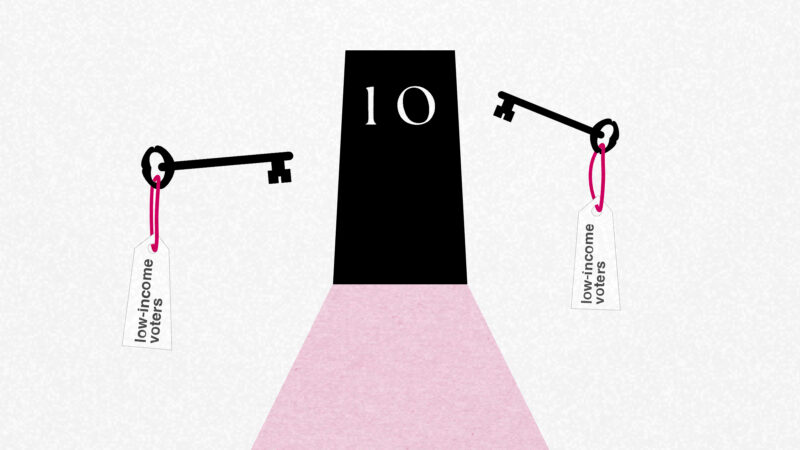
British politics is experiencing an unprecedented level of fragmentation, and it will be an uphill battle for either of the two largest parties to build large enough coalitions by the time of the next election to achieve a working majority. The challenge for Labour – as it is for the Conservatives and Liberal Democrats – goes much deeper than the position it now takes on Brexit, as dominant as that is. For voters living on a low income, they care about a whole host of issues, and their loyalties are much more divided between the parties than may have previously been thought.
Research for the Joseph Rowntree Foundation has shown that people on the lowest incomes are now the most likely to change how they vote. Between 2010 and 2017, more than half of voters on a low income either changed which party they supported between elections or changed whether they voted at all. And voters on a low income are much more likely to turnout than before – in 2017, turnout amongst low-income voters rose by 7%, the first notable increase in 30 years.
In 2017, Labour reversed a trend of sliding support among low income voters, increasing its share among this group by 13% compared to 2015. But so did the Conservatives; growing their low-income vote share by a further 5% according to British Election Study data. Over the next few weeks, JRF will be releasing further polling on how low-income voters could influence the next election. It is clear that no party can afford to take these voters for granted.
This builds on work JRF has been doing since 2016 to understand the concerns and interests of people living on a low income. Our starting point is that the experiences of people living on low incomes have been overlooked in public and political debate for too long. This is simply not right. At our conference fringe event next week with LabourList, we’ll present a preview of the findings, ahead of full publication in the next few weeks.
Like everyone else, low-income voters will vote for parties whose values and attitudes chime with theirs. These decisions won’t take place in a vacuum, and people living on a low income do not have a distinct set of views to other groups. Personal circumstances, social groupings, the health of their respective communities and the experiences and views of friends, families and neighbours all shape their decisions. But their experience of trying to make ends meet in the face of numerous obstacles gives rise to specific considerations.
Low-income voters are not one monolithic bloc, and often generalised characterisations underplay the range of demographic differences as well as their values. Many are not decided about how they plan to vote. For all, Brexit is only one of a whole range of issues that matter to them. With a higher turnout and more people switching votes, parties need a strong and clear strategy to secure the votes of people on low incomes.
Claire Ainsley will speak at a Labour conference event titled ‘Do low-income voters hold the key to the next election?’. She will be joined by Dawn Butler MP, Laura Pidcock MP and Anand Menon. Hosted by LabourList in partnership with the Joseph Rowntree Foundation, the panel event will take place on Monday 23rd September, 3.30-5pm, in the Pavilion Room, The Grand.




More from LabourList
Nudification apps facilitate digital sexual assault – and they should be banned
Diane Abbott suspended from Labour after defending racism comments
Labour campaign groups join forces to call for reinstatement of MPs